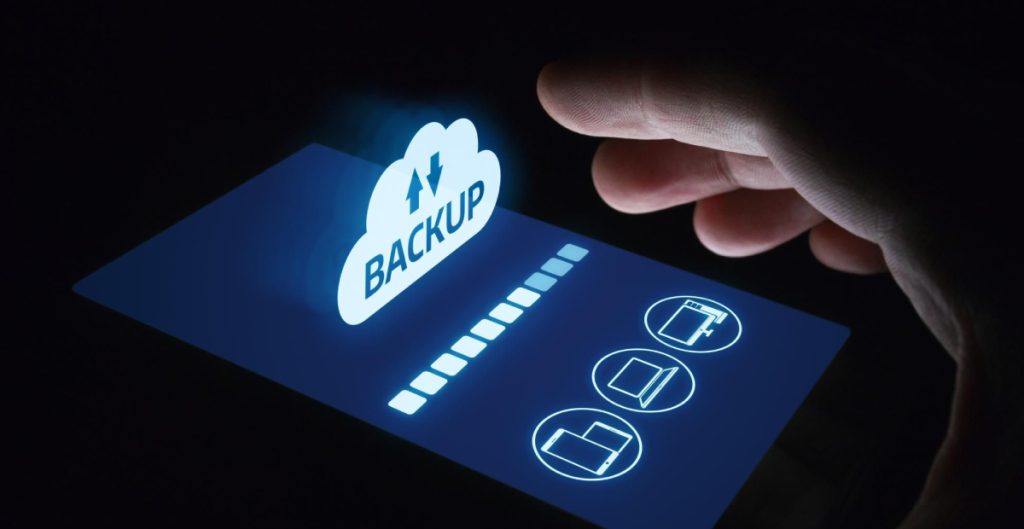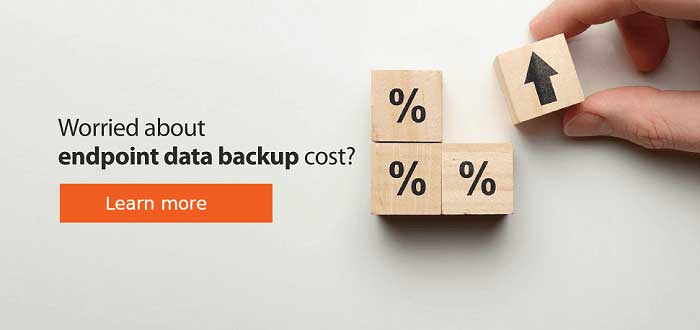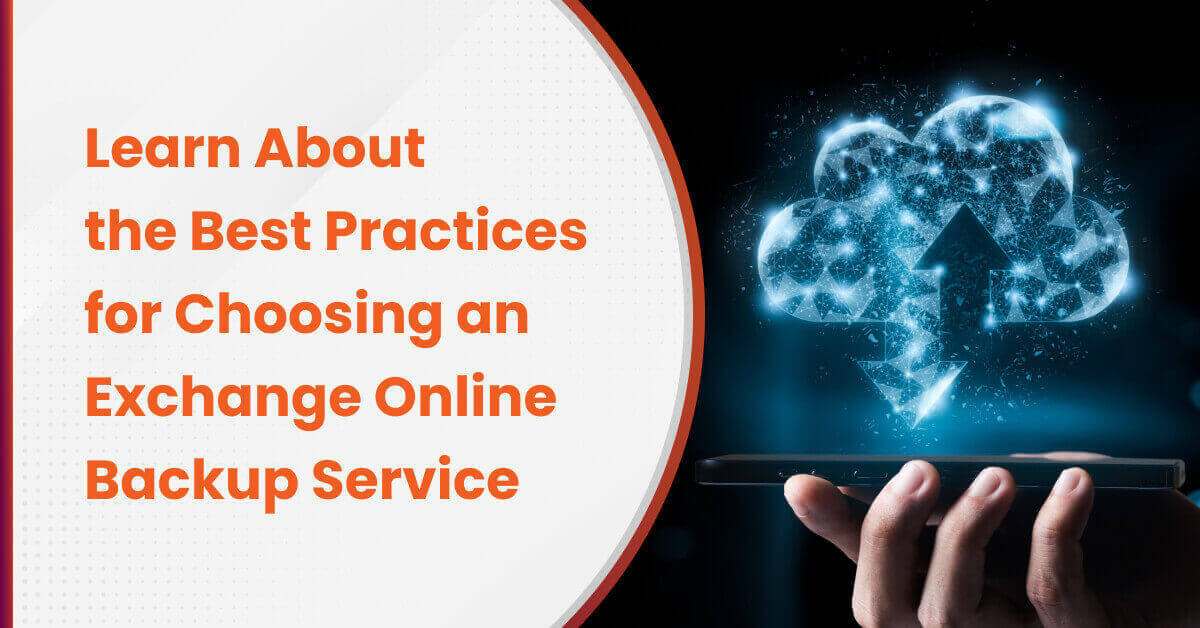10 Good Reasons to Opt for a SaaS-based Backup Solution

Backups are a necessary part of any good IT Administrator’s toolkit. Having a solid backup strategy makes life a lot simpler and allows Administrators to focus on things that need their attention instead of having to be in “crisis” mode all the time. Backups are the kind of application you don’t even have to think of when it is working well – but it can be a daily frustration if you don’t have one.
Why SaaS is Important
Conventional wisdom from even a few years ago dictated that it is best to control backups closely. A whole generation of IT administrators have grown up with rules of thumb – like make 3 copies of all data – keep a tape copy offsite, etc. But 2 drivers – SaaS and Mobility – have forced a disruption that is forcing a rethink of several strategies; and backup is no exception.
On top of everything else, the last 12 months of living with the pandemic, have also forced strategies to be re-thought and re-designed. Administrators are now much more open to considering SaaS-based backups or Backup As A Service (BaaS) as it’s more commonly being referred to.
A whole generation of IT administrators have grown up with rules of thumb – like make 3 copies of all data – keep a tape copy offsite, etc. But 2 drivers – SaaS and Mobility – have forced a disruption that is forcing a rethink of several strategies; and backup is no exception.
1. Work from Home
The most important reason I can think of and the biggest reason there’s an upsurge of interest in SaaS-based backup is the current reality. Employees, when working from home, can’t easily get access to servers on-premise. And if an organization’s backup strategy required an on-premise backup server – the Administrators have to seriously re-think that. VPN systems were never designed to have so many people working from home, much less, being able to handle all the traffic backups generate.
The best model in such circumstances is to situate the backup server in the cloud. And while this is technically possible to do yourself using server co-location partners or by using enterprise cloud accounts such as Amazon or MS Azure – the benefits of going with a fully managed/hosted model are hard to argue with.
2. Capex vs Opex
Financial divisions of many companies are now espousing a model that reduces capital investment in favor of Operational expenses. In such scenarios where common sense dictates that leasing is better than buying – businesses prefer to subscribe to Backup Services rather than pay for the Backup Server hardware and associated license costs.
3. Infrastructure Headaches
Hardware can be a headache. Backup servers and storage systems that go with them are more things to manage, secure, patch, and keep up-to-date. Vulnerability assessments, penetration tests, Firewall and WAF rules to set and manage, integration with Active Directory, SIEM, SMTP, etc., etc. the list can go on. If these headaches can be outsourced, why not?
4. Personnel
In these times, with most organizations cutting costs, IT teams are perennially understaffed. And those on staff already have frayed nerves working through several emergencies on any given day. Backup systems can be complex to deploy and keep running. It requires staff, training, and the right expertise. Using a service means this personnel is effectively outsourced too. As opposed to a team of 3-5 members, an organization may be able to manage with as little as half a head-count if using a reliable SaaS backup service.
5. Protect against obsolescence
Unlike on-premise hardware which can become old, obsolete, become unsupported, good SaaS solutions usually assure customers of cutting-edge compute, network, and storage systems. It is in the interest of the SaaS vendor to stay on top of their game for performance and competitive reasons and old customers get the same benefits of the hardware upgrades a SaaS vendor makes to gain new customers.
Similarly, software subscriptions usually include technical support and built-in updates and upgrades which can be added if you’ve purchased an on-premise system (usually sold with perpetual software licenses).
6. Global presence
If you have a distributed workforce, standing up backup servers in multiple locations can be quite daunting. A business may have 2-3 large offices which have data center or computer room capabilities. But not every sales office across the world might. Backing up data from users in such locations can be challenging from a hardware and network standpoint. Having a SaaS-based backup that can provide global points of presence means every employee is an equal opportunity user – whether they work in HQ or in a remote office in Timbuktu.
7. Built-in redundancy
Backup systems, just like anything else mission-critical will need redundancy. Building redundancy can be expensive from both a hardware and software standpoint. Buying two of everything or investing is clustering software in non-trivial – not to mention that this adds a few more wrinkles into an already complex system.
SaaS-based solutions usually offer redundancy as a matter of course. Instead of standing up a server for each customer, SaaS-based Backup services will most likely have a farm of servers and storage into which they onboard the business as a ‘tenant’. The compute and storage farm in most cases offers redundancy that’s far superior to what an organization might be able to individually afford.
8. Offsite backups
One of the big reasons to do backups is to make an offsite copy to protect against any physical disasters. A BaaS by its very nature, being a cloud-based backup – gives businesses an offsite copy. You don’t need to plan for it separately.
9. Better protection against ransomware
Modern ransomware is notorious for identifying and destroying backup data. Backup data sets that are stored on-premise using disk file shares etc. can become a prime target for a ransomware attack. Ransomware spreads easily and rapidly across local LANs and if the backup target is nothing more than a SAN storage disk mounted as a file system – that barrier is easily breached.
Cloud-based backups require modern, token-based authentication using protocols like OAUTH 2.0 and each read/write request is controlled via API calls using protocols like REST. This creates an API Gap that makes it extremely difficult for ransomware to breach.
10. Total Cost of Ownership
While BaaS solutions may optically look to be more expensive than purchasing backup licenses and standing up your hardware – the hidden costs in terms of personnel, 3rd party licenses, downtime, etc. can prove vastly more expensive.
Thoughts? Let us know – we always love to hear from readers.
At Parablu we specialize in building data management solutions like Backup. We offer solutions that are hosted as well as on-premise – so we know these pros and cons well. Our unique solutions can also integrate with existing subscriptions you have like Microsoft 365 or Google G-Suite and save you a ton in terms of the storage costs associated with Backup.
Write to us at info@parablu.com to learn more.
Data Protection with Zero Cost Storage for Backup





